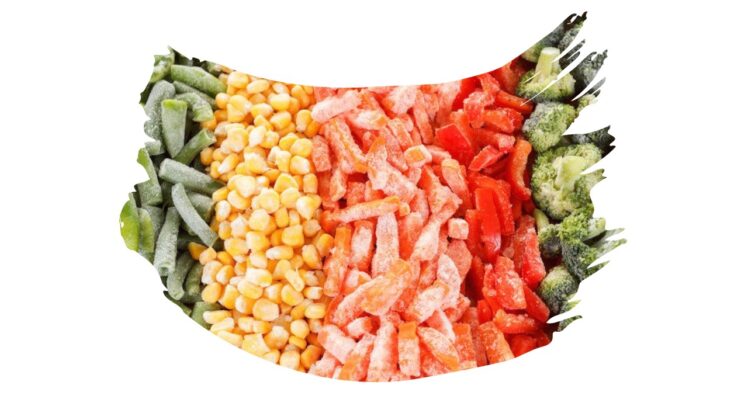
09 Aug 2024
“A small change that can make a big impact”.
In 2023, a new report entitled Three Degrees of Change was published, which suggested that frozen food temperatures could be changed from -18°C to -15°C. The research was led by the University of Birmingham, the Paris-based International Institute of Refrigeration, and London South Bank University, among others.
The research shows that raising the temperature of frozen food by just 3°C could safely reduce food loss and cut carbon emissions. Globally, 12% of food produced annually for human consumption is lost due to a lack of proper temperature management. The global cold chain moves millions of tonnes of frozen food every year at a temperature of -18°C. That international standard temperature was established almost a century ago, but logistics and technology have evolved significantly in the decades since.
Since the publication of the independent academic research, combined with the perishable goods sectors’ Net-Zero 2050 ambitions, the movement towards -15°C has gained a great deal of momentum. One noticeable alliance being The Move To Minus 15°C | Cold Chain Sustainability This is a campaign to build a coalition of industry partners to change the temperature that frozen food is stored and transported at around the world. It has been recently backed by Morrisons, The Cold Chain Federation and British Frozen Food Federation to name but a few.
As an important cog in this sector, the refrigeration industry should be driving this forward and be a part of the solution. The three degrees of change could significantly reduce carbon emissions which fits perfectly with our drive towards a sustainable energy efficient refrigeration, where technology for temperature control has advanced significantly over the years.
A reduction in temperature would also have a commercial benefit. It could mean smaller compressors with less absorbed power, and smaller evaporators. Pipework would potentially be smaller, meaning less material and labour to install. The overall result would be a cost saving on new refrigeration projects.
Dr Leyla Sayin, Deputy Director, Centre for Sustainable Cooling and Cooling Specialist Advisor to the Department for Energy Security and Net Zero, said: “Increasing the temperature of frozen food by 3°C would make freezing food far less environmentally damaging. The standard temperature of -18°C was decided 93 years ago and has not changed since, so we have an inbuilt process of ‘over-freezing’ food. It is perfectly safe to freeze food at a higher temperature of -15°C and it would make freezing food at the point of harvest easier in hotter climates and to maintain during transportation. In the UK approximately 50% of food is imported from 160 countries, so a shift to more freezing at a higher temperature would have a huge impact, and not just at home. Apply this to the rest of the world and we are looking at a full transformation of the global food and cold chain.”
We’d love to hear from you. Please enter your details in the form below and we will get back to you.
We take your privacy seriously. We will keep your data safe and we won’t pass it on to any third parties.
Please see our privacy policy for more details.